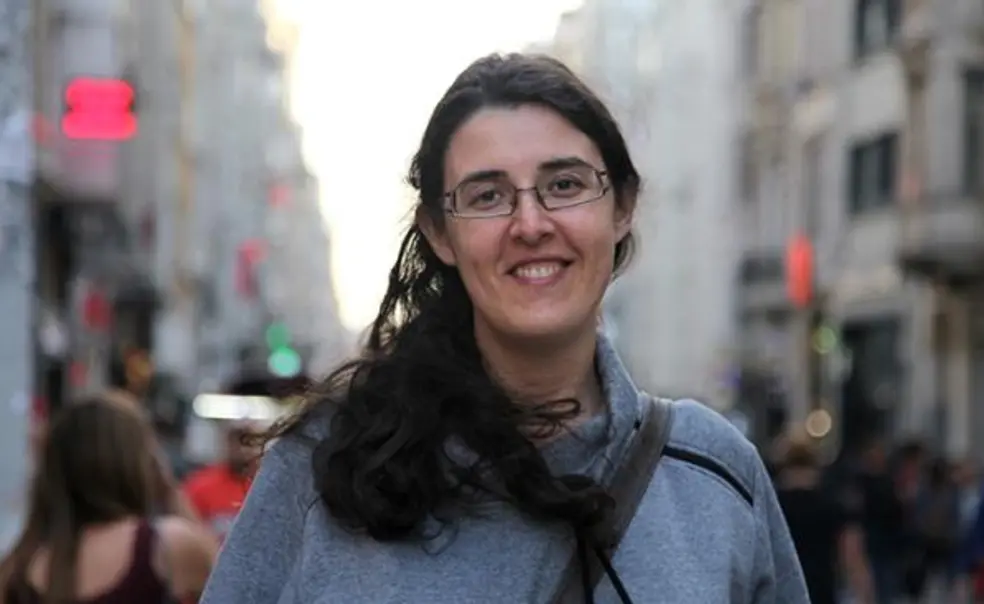Alumni Experts Say the U.S. — and Princeton — Should Lead Charge to Release Elizabeth Tsurkov
The United States is “probably the only government that has both the means and the will” to bring home Elizabeth Tsurkov, the Princeton graduate student who was kidnapped in March while conducting research in Iraq, according to Samuel Helfont *15, an assistant professor of strategy and policy at the Naval War College.
Helfont, an Iraq War veteran who received his Princeton Ph.D. in Near Eastern studies, researches the history and politics of the Middle East. He said that while Tsurkov is “not an American citizen, she is what the U.S. government would describe as a U.S. person, which means she has some protections under American law. And as someone who’s a resident and a student at an American university, I do think the Americans should be doing their best and doing everything they can to try to help her.”
In early July, the Israeli prime minister’s office released a statement announcing that Tsurkov was alive but had been taken by Kataib Hezbollah, a Shiite militia group that is considered by the U.S. government to be a terrorist organization. Tsurkov, who holds both Russian and Israeli passports, has been pursuing a Ph.D. in politics at Princeton since 2019, according to her LinkedIn page. The New York Times reported that the U.S. State Department released a statement that condemned Tsurkov’s abduction but deferred to Iraqi authorities for comment.
Princeton students are not currently allowed to perform academic work in Iraq, according to a July 2023 document published by the University’s Global Safety & Security unit. University spokesman Michael Hotchkiss had no comment when asked if Princeton was aware of or approved Tsurkov’s trip. So far, the only official statement from the University expressed concern for her safety and well-being and eagerness “for her to be able to rejoin her family and resume her studies.”
In an interview with i24 News, Tsurkov’s sister, Emma, said she is “really hoping to see a collaboration between all the relevant governments to secure her release as soon as possible.”
Jacob Olidort *15, director of research at the Jewish Institute for National Security of America, said Princeton should be “lead[ing] the efforts to bring back any student who is wrongfully detained abroad,” according to an op-ed he published in The Daily Princetonian.
Olidort told PAW via email that “universities have a unique credibility and prestige as conveners of precisely these types of conversations” and that “universities have an important role to play in helping shape the space for research exchanges with their counterparts around the world.”
According to Olidort — who was part of a team in the late Sen. Orrin Hatch’s office that successfully worked to bring home Joshua Holt, an American imprisoned in Venezuela in 2018 — not only can Princeton help save Tsurkov’s life, but the University can also “have a transformative effect in guiding America’s presence and engagement in the [Middle East] region, given its unique role as a trusted interlocutor.”
But Olidort told PAW that field research abroad is “always a tradeoff with risks. In today’s world, there is probably no area of overseas field work that does not come with real and immediate physical safety risks.”
Helfont said he believes Tsurkov should be able to perform academic research in Iraq, but “that doesn’t mean that that reflects the reality of all the complexities of the Middle East and Iraq, and the type of reaction that that’s going to get,” especially as Tsurkov is an Israeli Jew.
According to Israel, Tsurkov entered Iraq using her Russian passport.
Helfont said students should be made aware of the full picture of risks when considering field research.
“There are institutional review boards, and they should have checked to make sure that everything she was doing wasn’t going to put people in danger, including herself,” he said.










No responses yet